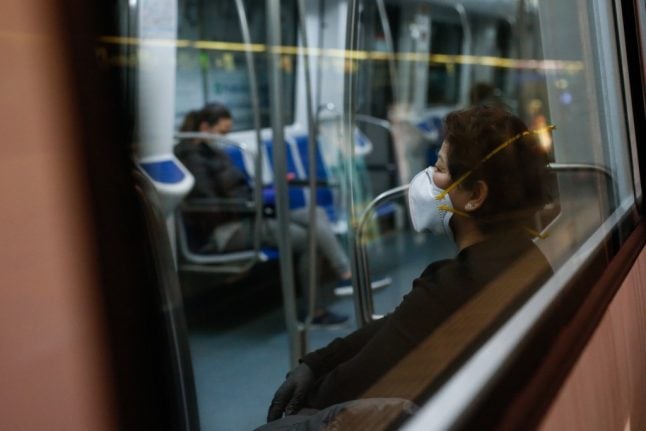Since Monday November 9th, people using the underground, train, tram or bus in Catalonia will be encouraged to adopt this safety measure.
Trains belonging to the Ferrocarrils de la Generalitat network will also include a “silent carriage”, in which not speaking will be required rather than encouraged.
Catalonia’s Minister of Territory and Sustainability Damià Calvet told local radio RAC1that if necessary an extra silent carriage would be added to each train to further encourage people to essentially keep their mouths closed and avoid the release of saliva particles which may contain Covid-19.
Calvet reiterated that not speaking, eating or drinking on Catalonia’s public transport was just a recommendation and not an obligation.
Catalonia’s metro and bus networks will not include a silent carriage as there are no separated sections as is the case with trains, but the recommendation of not speaking, eating or drinking while on board is now signposted and broadcasted through the vehicle's megaphone.
Public transport usage in the region is currently “low” according to Calvet, with 50 to 60 percent of normal capacity on work days and 70 to 80 percent on weekends.
The minister stressed that the problem is not public transport, but rather the rush hour.
There are reports that in Barcelona in particular the large volume of public transport users in the morning makes it impossible for travellers to keep a secure distance between each other.
Para que sirve si he tenido que esperar 9 minutos un metro el cual va abarrotado. De nada sirve pic.twitter.com/zRKIQ6P8cn
— como que no (@comoqueno14) November 7, 2020
A Barcelona metro user replies to a tweet by local transport authorities regarding a longer-lasting disinfectant they've started using by sharing a picture of a packed carriage, stating “What's the use if the metro is packed?”.
“We can’t put put more trains and buses into service,” Calvet said.
“What we have to do is spread the rush hour out, so that not everyone uses public transport between eight and nine o’ clock in the morning.”
Back in October, Spain’s Health Ministry said the Catalan capital should reduce its public transport capacity by 30 percent as a means of curbing infections.
Catalonia’s regional government imposed a perimeter confinement beginning October 30th and lasting for 15 days.
A curfew is also in place from 10pm to 6am and all restaurants and bars throughout the region have been closed except for take away services.
In a measure designed to limit movement over weekends people are not allowed to travel beyond the limits of the town or city they reside in between Friday 12 am and Sunday 12pm.
As of November 10th, ICU admissions in Catalonia are on the up although the region’s R rate is below 1 and is currently slowing down.
There have been more than 300,000 Covid-19 infections in Catalonia, a region of 7.5 million inhabitants, since the pandemic began.



 Please whitelist us to continue reading.
Please whitelist us to continue reading.
Member comments